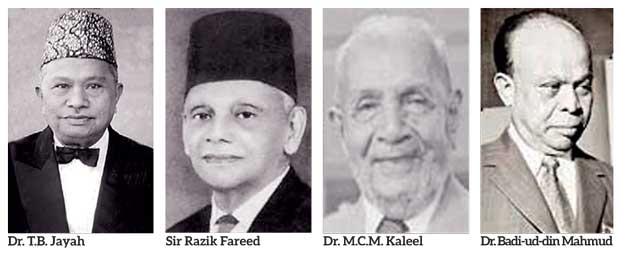Project aims to preserve seeds of crops that once grew across historic Palestine, and to safeguard waning biodiversity.
By Dalia Hatuqa
![Teachers attend an Heirloom Seed Library workshop in the West Bank village of Battir [Photo courtesy of Vivien Sansour]](https://sailanmuslim.com/news/wp-content/uploads/2016/06/Project-aims-to-preserve-seeds-of-crops-that-once-grew-across-historic-Palestine-and-to-safeguard-waning-biodiversity..jpg)
Ramallah, occupied West Bank – A search for rare seeds may seem like something out of a fairytale, but for Vivien Sansour it is a quest to bring back what years of Israeli occupation practices and climate change have pushed to the brink of extinction.
The agronomist from Beit Jala, a town near Bethlehem, is collecting seed varieties handed down by Palestinian farmers for generations – an effort that will culminate with a seed library which she hopes will sprout into others across the occupied West Bank and the Gaza Strip.
The Palestinian Heirloom Seed Library will be unveiled on June 3 in Battir, a West Bank village between Bethlehem and Jerusalem that is known for its ancient agricultural terraces.
The library aims to preserve seeds of crops that once grew across historic Palestine, and to safeguard whatever is left of the area's waning biodiversity.
In the future, the library may find a home at the science studio of the AM Qattan Foundation, a Ramallah-based independent institute focusing on cultural and educational development, which is supporting the project.
The seed library, the first in Palestine, also endeavours to document horticultural history and to educate Palestinians about traditional agricultural practices in danger of being supplanted by modern techniques.
"The occupation breaks you down and makes you not value what you have. We are trying to do more than lend and borrow seeds: to re-generate this sense of value."Vivien Sansour, seed library founder
"What's more symbolic and yet literal than the seed itself?" Sansour said in an interview with Al Jazeera. "Farmers who have been role models in terms of developing seeds and passing them down over generations, are now losing this identity. We, as Palestinians, are losing what makes us who we are, which is our seed."
Cultivating the land is a central theme in Palestinian culture and identity, found ubiquitously in music, poetry and proverbs. Farming, a livelihood that also connects Palestinians with their land, has withered over the years under the strain of mushrooming Israeli settlements, the separation wall that cuts farmers off from their crops, and the embrace of a neoliberal economic model by Palestinian policymakers.
With this has come a lack of investment in agriculture, with the Palestinian Authority allocating no more than 1 percent of its annual budget to the sector.
Sansour, who studied anthropology and lived abroad for more than a decade, was inspired to form the seed library by her "true teachers" – farmers and growers in Honduras, Uruguay, Mexico, Italy and Palestine – all of whom shared a common struggle, she said.
"If I'm speaking to a farmer in Chiapas [Mexico] or Guatemala or Italy or Palestine, the struggle is exactly the same," she said. "It's all about not being a target by government or agribusiness which wants to eliminate the small-scale farmer, and push them towards becoming dependent consumers rather than productive farmers and producers."
Some of the strains the library aims to preserve or revive are cucumber, zucchini, pumpkin, and a watermelon, known for its large size and sweetness, that once grew in the fertile northern plain of Marj Ibn Amer and was hauled in the truckloads to regional cities such as Damascus before 1967.
"The Jadu'i watermelon has almost disappeared, partly because of diseases that have come about in recent history," Sansour told Al Jazeera. "We found some seeds for it. They are a few years old, so we will have to see how viable they are."
The project also includes workshops that Sansour has been running once a month for teachers, who have introduced the idea of preserving heirloom seeds to their own students, and encouraged them to collect oral histories from their elders about crops they grew in the past.
Osama al-Jubeh, a 50-year-old teacher at a Hebron area school, said he first learned the differences between heirloom, hybrid and genetically modified seeds in one of these workshops.
"A by-product of the experience, however, has been preserving knowledge," said Jubeh, who also volunteers his time to raise environmental awareness among young Palestinians. "We asked our students to get testimonials from their elders about their experiences with seeds. One story that stood out was of a now-elderly woman who was exiled to Kuwait. Before she left, she made sure to take with her seeds of an orange tree, which she planted there."
![From the seed library, sketched here, anyone would be able to borrow seeds to grow their own plants [Photo courtesy of Vivien Sansour]](https://sailanmuslim.com/news/wp-content/uploads/2016/06/From-the-seed-library-sketched-here-anyone-would-be-able-to-borrow-seeds-to-grow-their-own-plants-Photo-courtesy-of-Vivien-Sansour.jpg)
From the library, anyone can borrow a packet of seeds, grow plants, and return seeds if they can produce their own as a result. The goal is to bring some plants back into circulation and encourage local diversity.
"We make it a point to highlight that this is not a seed bank but a library, because you plant a seed that's borrowed with the hope that it will grow, and you return it so other generations can make use of it," said Nader Wahbeh, who directs the science education project at the Qattan Foundation.
The library experience will also include learning about the "history of the seed, the geographical area it came from, the season it grows in, how we grow it, in addition to stories of how this library was established", Wahbeh told Al Jazeera.
Sansour hopes the library, beyond helping to save local strains, will empower Palestinians facing land and water confiscation, lessening their reliance on Israeli agricultural inputs such as soil, seedlings and fertiliser.
"Not having sovereignty over seeds and the disappearance of seeds that have been passed down to us for thousands of years is a major tragedy," she said. "The occupation breaks you down and makes you not value what you have. We are trying to do more than lend and borrow seeds: to re-generate this sense of value."
Source : http://www.aljazeera.com
Post Disclaimer | Support Us
Support Us
The sailanmuslim.com web site entirely supported by individual donors and well wishers. If you regularly visit this site and wish to show your appreciation, or if you wish to see further development of sailanmuslim.com, please donate us
IMPORTANT : All content hosted on sailanmuslim.com is solely for non-commercial purposes and with the permission of original copyright holders. Any other use of the hosted content, such as for financial gain, requires express approval from the copyright owners.
 Sri lanka Muslims Web Portal Sri Lanka Muslims News Center
Sri lanka Muslims Web Portal Sri Lanka Muslims News Center
 Donate
Donate


